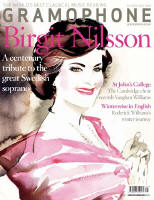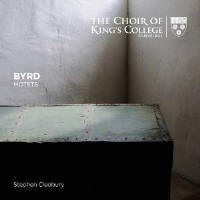Texte paru dans: / Appeared in: |
|
|
Outil de traduction (Très approximatif) |
|
|
Reviewer: Edward Breen The Choir of King’s College, Cambridge, and the Renaissance composer William Byrd are undeniably icons of English music. It is a delight, therefore, to hear them united in these surprisingly exuberant performances which also offer a fascinating record of the sound of King’s choir today. I say this because that sound has changed utterly since some of the same motets were recorded under David Willcocks in 1965 (‘Byrd and his Contemporaries’ – Warner Classics, 9/65). Not surprisingly, close listening reveals a radical shift in pronunciation and interpretation as well as the individual voices of the choral scholars. Throughout this disc, Cleobury opts for an upfront expressivity quite at odds with that classic, old King’s sound, leading to some very exciting moments. Occasionally the trebles lack the finesse and steely control to pull off the sort of performance heard from New College, Oxford, on their famous Byrd 1589 Cantiones sacrae (CRD, 12/91). Yet, while I applaud Cleobury’s commitment to a more extrovert approach, I do find some of his phrasing choices disappointing towards the beginning of the album. The strong-weak emphasis on dotted rhythms in the opening motet, Rorate coeli, strikes me as a Baroque mannerism, and the aspirated melismas in that same treble line shroud Byrd’s clear polyphonic fabric in fussiness. In the otherwise impressive men’s voice performance of Vigilate, I find passion and urgency tend towards a rather harshly incessant alto tone.
Yet elsewhere the sound of the
choral scholars – fuller, richer and bolder than ever before – pays many
dividends. The Lenten motets Ne irascaris, Domine and Civitas sancti
tui are superb, if not slightly too brisk for my taste. More tenderness
could be found in Byrd’s shapely setting of the word ‘Jerusalem’ but this is a
small point compared to the rich vocal tone. By far the best track on this disc,
though, is Alleluia: Ascendit Deus. Here, in a higher tessitura,
the trebles find more focus and the phrasing flows joyfully.
|
|




